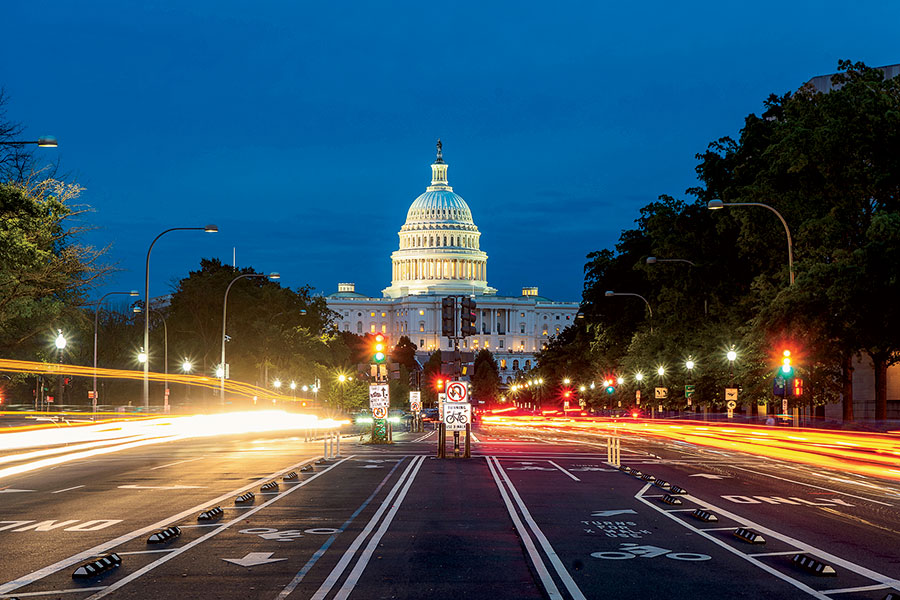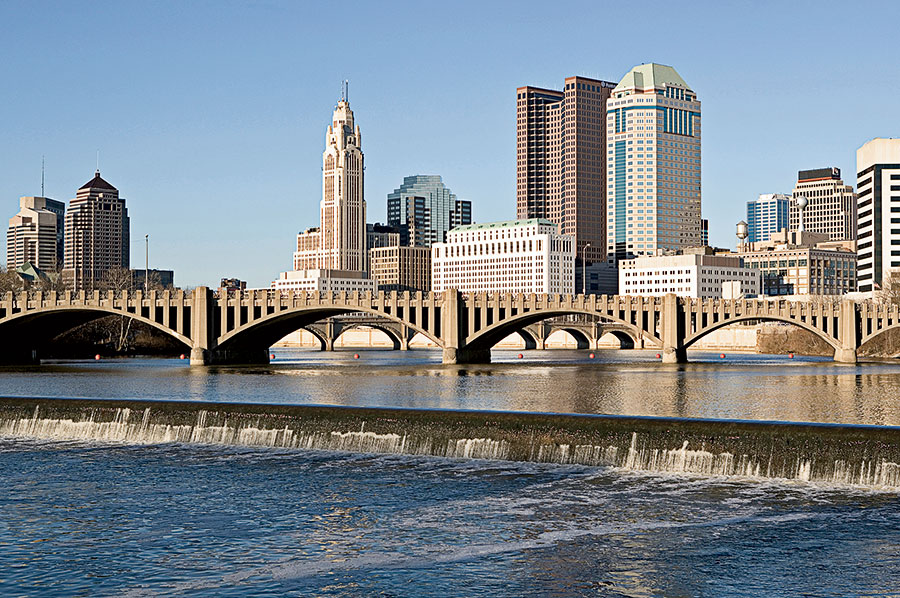
“Six percent sales tax is pretty generous,” I told the bookstore clerk in Detroit. “In Chicago, we pay 10.25. Tied for highest in the nation.”
“Why is it so high?” she asked.
“Well, there’s no city income tax, like there is here. So that’s how they get their money,” I responded.
Some of their money, at least — but not enough. With pension obligations piling up, Mayor Lori Lightfoot promised in her State of the City address on August 29 to “explore every reasonable option” to close the city’s $838 million budget deficit. A couple of weeks later, a group of progressive aldermen, including 47th Ward freshman Matt Martin, held a City Hall press conference with the organization Grassroots Collaborative to suggest a city income tax as precisely that — not only a practical solution for balancing the city’s budget but the fairest way to capture the wealth flowing into Chicago, as international businesses set up headquarters downtown and their well-paid employees move into newly built apartment towers on the lakefront.
“Most other large cities are not so heavily reliant on property taxes,” Martin says. “Many of our sister cities have some sort of municipal income tax. [By instituting a progressive one, we can] better reflect the way our economy has grown and reduce the burden on middle- and low-income residents.”
During her campaign, Lightfoot rejected the idea of a municipal income tax, which would require an enabling act by the General Assembly. (Illinois is not one of the 13 states, plus the District of Columbia, that allow municipalities to levy income taxes.) Now that she’s seen the size of the hole her administration has to fill, for the first time, she’s not outright rejecting it. “While a city income tax would generate revenue, it would require state approval and is not currently part of the city’s legislative agenda for this veto session,” the mayor told Chicago magazine in a statement.
Just how much money could an income tax raise? A 2011 study by the city’s Office of Inspector General estimated that a 1 percent income tax would generate $500 million a year. The Action Center on Race & the Economy, a progressive think tank, had an even more aggressive proposal in February: In its report A World-Class City: A Financial Blueprint for the City that Chicagoans Deserve, ACRE suggests a 3.5 percent tax only on household incomes over $100,000. If the tax were applied to both residents and commuters, it could bring in $1.4 billion. “Now that we have a large number of wealthy folks moving into the city, how do we tax that wealth so we can make the city livable for the black and brown folks that have been living here?” asks Saqib Bhatti, a coauthor of the report.
Even as the city’s population decreased from 2013 to 2017, Chicago’s total personal income increased from $77 billion to $88.6 billion. That’s because while poorer residents are moving out, wealthier residents are moving in. An income tax, though, could reverse that financial trend by making the city less attractive to high earners, says Adam Schuster, director of budget and tax research at the free-market Illinois Policy. “We oppose a city income tax because residents already face one of the highest tax burdens in the nation,” he says. “It’s likely that people would relocate to the suburbs, exacerbating the outmigration problem. You could see some flight of high-income earners, or fewer income earners moving into the city, but the economic harm would impact everyone. The No. 1 reason people give for wanting to leave Illinois is the high tax burden.”
Ever since Governor Richard Ogilvie was voted out of office in 1972 for approving the state’s first income tax, Illinois politicians have been reluctant to use the tool. The General Assembly has never allowed municipalities to collect income taxes. That’s one reason our state has one of the most regressive tax systems in the nation. (Of the nation’s 25 largest cities, five levy income taxes on residents; so does Indianapolis, which shares a municipal structure, including a local income tax, with surrounding Marion County.) Sales taxes hit the poor harder than income taxes. So do property taxes, because poorer residents spend a larger proportion of their earnings on housing. In Chicago, property taxes are especially burdensome on lower-income residents, because powerful politicians such as Ed Burke and Michael Madigan have made side hustles out of using their influence to win tax breaks for businesses and wealthy homeowners.
Statewide, the climate has become more welcoming to the idea of progressive taxes. Earlier this year, the General Assembly approved a referendum for a graduated statewide income tax. But that could make it difficult for legislators to turn around and immediately approve a city income tax, says Michael Belsky, executive director of the Center for Municipal Finance at the University of Chicago. “If you’re going to sell it politically, it would be smart to say, ‘Once we solve this pension problem, we could use the excess in the future to reduce the sales tax or the property tax,’ ” he says.
A city income tax would not make us an outlier. A 10.25 percent sales tax does. That’s a tradeoff Chicagoans might like.
Coming to Collect
Five of the 25 largest cities in the United States already collect an income tax — in two cases graduated.

Washington
Residents:4.00% to 8.95%
Commuters:0%

New York City
Residents:3.08% to 3.88%
Commuters:0%

Philadelphia
Residents:3.87%
Commuters:3.45%

Columbus, Ohio
Residents:2.50%
Commuters:2.50%

Detroit
Residents:2.40%
Commuters:1.20%


